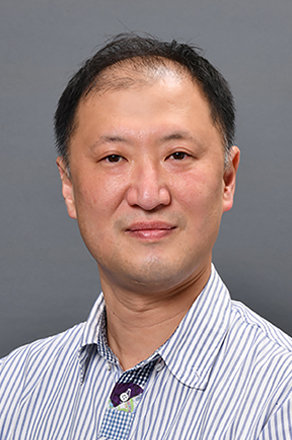
Improve the Reliability of ICT System Construction and Operation
Network and Distributed Systems Architecture Laboratory
Associate Professor:UDA Satoshi
E-mail:
[Research areas]
Internet Architecture, ICT-system operation
[Keywords]
Network routing, Campus information infrastructure, Data center, Cyber security
Skills and background we are looking for in prospective students
In this field, which is evolving day by day, it is important to keep in touch with new technologies and services, and to remain aware of the issues rather than stopping at the current situation. It is also helpful to have a basic knowledge of the mechanisms of network services and the technologies involved in their construction and operation in your research activities.
What you can expect to learn in this laboratory
Students will discover issues, search for solutions, discuss them, and realize them by developing PoC starting from services and technologies used in the real world. Through this kind of training, students acquire the ability to design, construct, and operate systems based on their insight and understanding of the "essence" of ICT systems.
Students will not only be exposed to the current information and communication technologies and learn how to use and operate them, but will also develop the ability to continuously acquire new knowledge and technologies.
【Job category of graduates】
Information and communication providers, Manufacturers, Consulting firms
Research outline
ICT systems have become the infrastructure of society and serve a major role in our social lives. New services are appearing one after another, and they continue to evolve day by day. On the other hand, service failures have come to have a significant negative impact.
In our life, the continuation of stable ICT services and the improvement of reliability are extremely important issues. This is not limited to large-scale ICT systems that are responsible for infrastructure, but also applies to internal systems of companies and organizations. Service failures have a significant impact on the business continuity of each company or organization.
In our laboratory, we are working on real-world-oriented approaches to the issues of ICT infrastructure, including information security, and the urgent needs of the real world, based on research trends, technology trends, and even productization trends.
Internet Architecture
Our research focuses on routing technology to make the Internet more convenient and comfortable to use.
In particular, we are also working on improving the functionality and efficiency of specific networks such as data center networks.
ICT System Operation Technology
The current ICT system is composed of many systems and modules, and has many dependencies. In addition to working on individual systems and modules, it is necessary to work on the design and operation of the entire system.
We are working to improve the operational reliability of ICT systems through system operation at the JAIST campus, joint research with companies, and fieldwork.
Cyber Security
Ensuring safety and security is an unavoidable part of network research. Network security is an important issue that affects the entire network technology in a cross-sectional manner.
In addition to incorporating security implications and requirements in research on Internet architecture and ICT system operation technology, we are also working on ensuring the security of organizations.
Key publications
- “Challenges of Deploying PKI based Client Digital Certification”: Satoshi UDA and Mikifumi SHIKIDA. Proceedings of the 2016 ACM on SIGUCCS Annual Conference, pp.55-60, the Association for Computing Machinery. 2016.
- “AYAME: A design and implementation of the CoS capable MPLS layer for BSD network stack”: Yojiro UO, Satoshi UDA, Nobuo OGASHIWA, Satoshi OHTA and Yoichi SHINODA. INET2000, Internet Society. Yokohama, Japan. Jul 2000.
Teaching policy
In the hope that students will be able to continue to work as engineers in the ICT field after completing the course, we will develop their ability to acquire new knowledge and skills, rather than just acquiring short-term skills. Students are expected to take the initiative in discovering research problems, exploring solutions, and discussing them. In solving problems, students will not only engage in discussions at the desk, but will also realize their proposals through implementation.
Faculty members will also support the students' efforts by providing advice. Depending on your research topic, practical activities such as joint research and exchange of opinions with other universities or organizations will also be conducted.